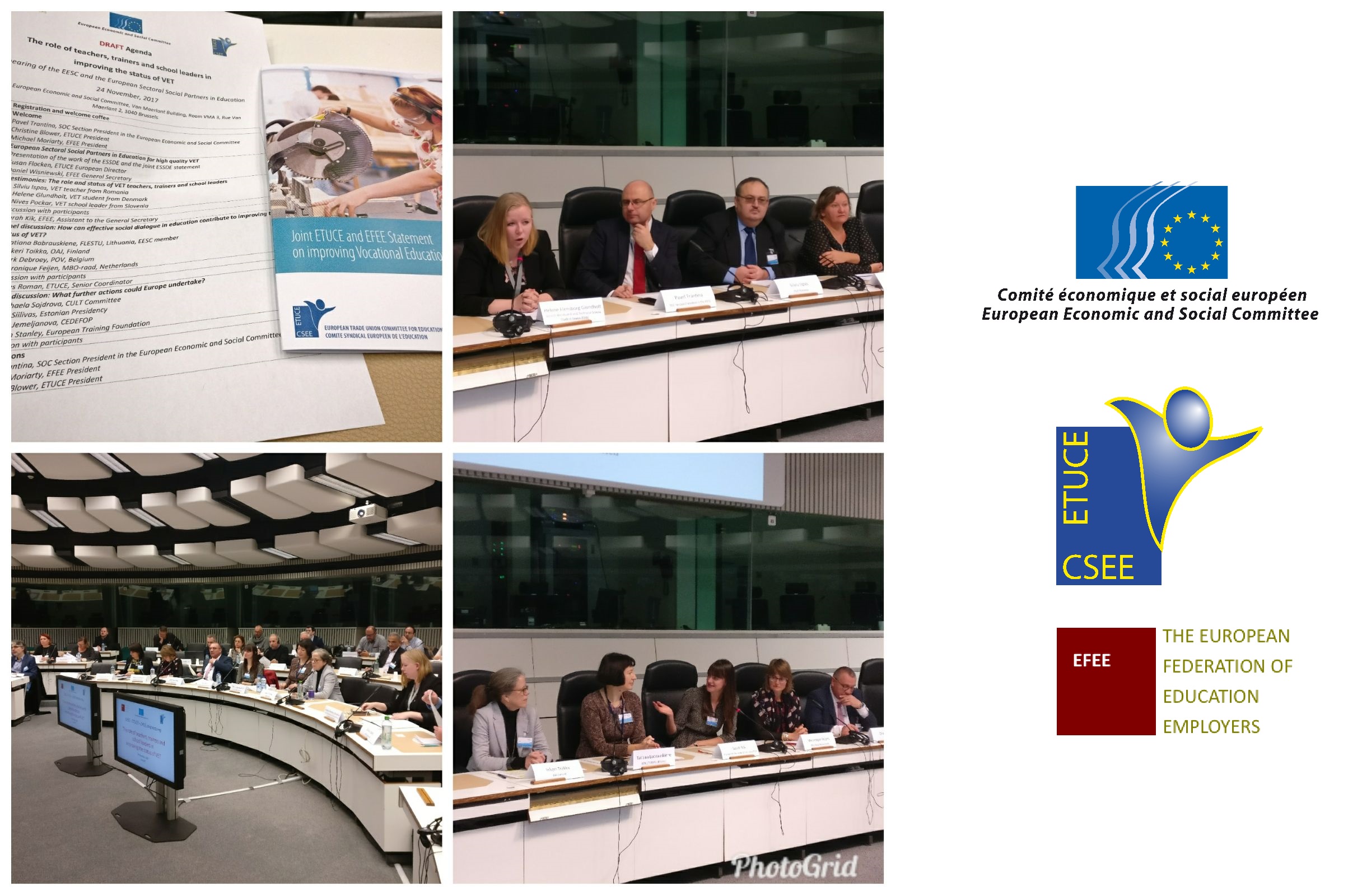Education social partners joint hearing: VET systems need ‘parity of esteem’, cooperation and professionalism
Published:
On 24 November 2017, at the occasion of the Public Hearing, organised jointly by the European Trade Union Committee for Education (ETUCE) the European Federation of Education Employers (EFEE), and the European Economic and Social Committee (EESC) on the occasion of the second European Vocational Skills Week, around fifty representatives from national trade unions and education employer organisations across Europe, Members of the European Parliament, policy makers, education and industry stakeholders, and civil society organisations gathered in Brussels to discuss and to shed light on “The role of teachers and school heads in improving the status of VET”.
Helene Glundholt, a VET student from Denmark graduating in visual studies recalled that despite a positive and supportive environment she is experiencing in her VET school, only 18% of young people in Denmark choose vocational studies. Helene doesn’t fit the stereotype of a vocational student with mediocre skills and unsupportive environment. Clearly, the mission of Helene’s education is twofold: to prepare students for the workplace and well as for further education. Next to Helene, the experience of Silvius Ispas, a VET teacher from Romania, tells a different story. Romanian students enrolling in VET are mostly those leaving gymnasium early with low level of skills and competences and, sometimes, behavioural problems and unsupportive families. Similarly, the Romanian VET system fails to attract the most prepared teachers, as they are discouraged by low salaries, deteriorating working conditions, unfair treatment and lack of professional support.
The image and the quality of VET in society is at the core of trade unions’ and employer organisations’ actions. In a recent joint ETUCE and EFEE Statement, the European education social partners commit to improve the attractiveness and image of VET. They call EU institutions and on governments to “improve the quality of VET institutions to enhance learning environment for students – that are free of gender stereotypes – and work environments for teachers, trainers, school leaders and other education personnel [including by] focusing on high quality working conditions, remuneration and professional training for VET teachers, trainers and school leaders”.
EFEE and ETUCE also agree that promoting further investment is a pre-condition to provide quality VET. Inkeri Toikka, from OAJ, the education trade union of Finland, recalled that current budgetary cuts and lack of commitment of policy makers risk to deteriorate the situation even in countries, such as Finland, where a high-quality VET system attracts around 50% of students. It is the representative from the VET employer association in the Netherlands (MBO-raad), Veronique Feijen, who stresses that high quality of VET also depends on good cooperation of all the partners involved: education trade unions, VET employer organisations, as well as companies and cross-sectoral social partners.
“It is important to tell a positive story, that is about parity of esteem of academic and vocational pathways and breaching the sense that VET is a class-based choice. It is also about connecting the professional and the industrial. Professionalism is not unconnected from remuneration.” said Christine Blower, ETUCE President, “Social dialogue is key to promote good conditions of services, better salaries, as well as space for professional learning for teachers. If we can persuade on the need of investment and parity of esteem, we are on the way to improve quality of VET and, with this, better society with better opportunities for all”.